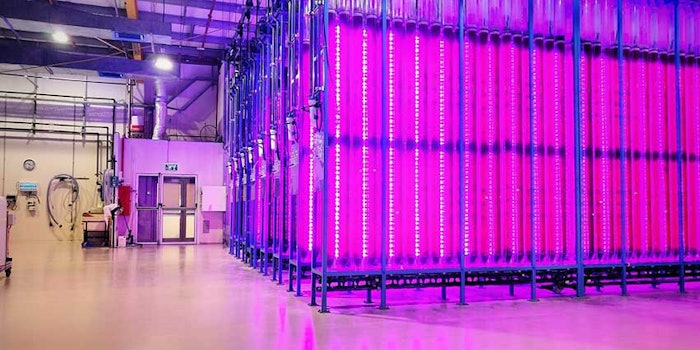
Yemoja, Ltd., has opened its new plant dedicated to the production of high-value microalgae. Here, Yemoja can efficiently cultivate customized, pharmaceutical grade microalgae on demand.
Related: Yemoja Launches On-demand Microalgae
The facility that is located in the Upper Galilee region of Israel, is now fully operational. Yemoja already has brought production up to speed to meet the recent high volume of orders emanating predominantly from the global nutraceutical and cosmeceutical sectors.
Yemoja cultivates microalgae customized to fit functional food, nutraceutical or cosmetic applications. The company utilizes a facility housing high precision, fast-track photobioreactor technology for microalgae production and sustainability.
Indoor cultivation operates in a closed, contaminant-free system that maintains control of key parameters such as temperature, pH, light and CO2 emissions with capabilities to produce a broad spectrum of pure algae in a tightly controlled environment.
“We built a ‘green’ factory where we can create and maintain the ultimate conditions for any known microalgae species, yet with zero dependence on external environment and weather,” explains says Erez Ashkenazi, COO and co-founder of Yemoja. “Our indoor system generates exceptional yields with proven reproducibility on a very small plot of land and using minimal resources.”
Previously: Manufacturing Microalgae for Skin Care
Yemoja operates a small batch production line structured in vertical luminescent columns known as illis. Each ille is allocated a specific algae species, completely closed off and isolated from other units to prevent any cross-contamination.
This facilitates the simultaneous and continuous production of a variety of algae-derived products that can meet the specific requests of customers, maintaining individualized control irrespective of batch volume.
“Our site runs on recycled water and minimal energy. The exploitation of artificial light for photosynthesis limits the need for cooling,” continues Ashkenazi. “We designed the site to meet the standards of operational efficiency to minimize environmental impact, leaving only a tiny carbon footprint. Our specialty ingredients are cultivated in a chemical-free, all-natural process with full respect of our natural habitat.”
Also related: Choosing the Right Microalgae for the Job
Following a series of successful proof-of-concept trials in 2018 and a fruitful seed round, Yemoja decided last year to move on to the next phase of opening a fully-fledged manufacturing plant. In May 2020, the plant began rolling out microalgae production on an industrial scale to meet the new influx of demand.
“Recently, we have received heightened interest in our external polysaccharide sulfate (EPS) Porphyridium cruentum due largely to increased global demand,” says Eyal Shalmon, CEO of Yemoja. “The polysaccharide has been investigated for its ability to be merged into various biotechnological applications and industry disciplines including cosmetics and biomedicine. The soluble polysaccharide fraction is already being used in skin care products and a considerable number of cosmetic formulations due to its anti-inflammatory and antioxidant properties.”
Yemoja has also teamed up with the Migal Galilee Research Institute Ltd. and others for long-term development and synthesis of novel algae-based small molecules for functional food and supplements targeting inflammatory bowel disease (IBD). As of two weeks ago, the project was approved to enter its next phase of development.










